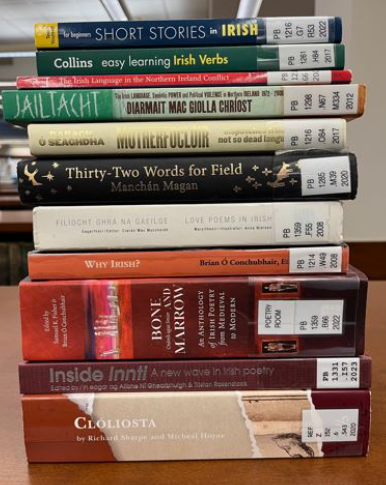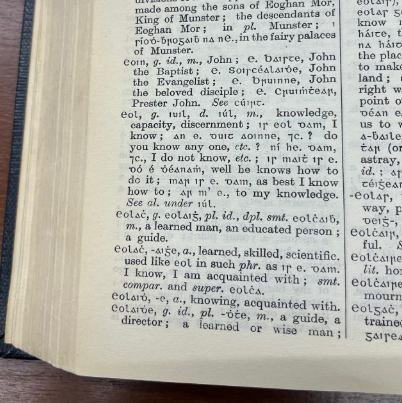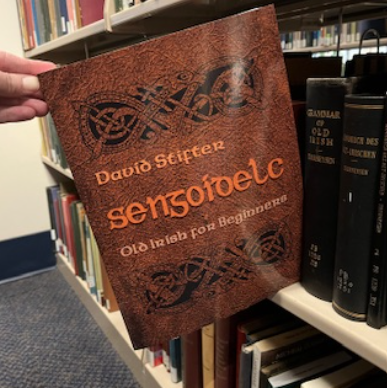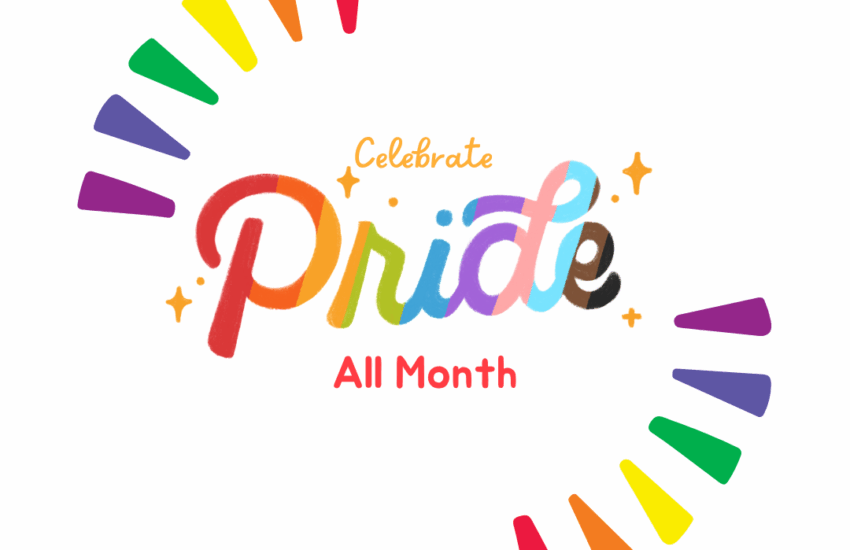Explore Irish Language Materials at Fordham Libraries
By Tierney Gleason, Reference and Digital Humanities Librarian, Walsh Library
It should be no surprise that Fordham Libraries collects Irish language materials given Fordham’s connections to Irish immigrant history in New York. From personal libraries donated over the years, digitized content in databases, and recent books, Fordham Libraries has all kinds of options for those interested in learning about Irish.
Fact check: is it “Irish” or is it “Gaelic”?
Americans often use the word “Gaelic” to describe the Irish language. Google even offers an answer from Wikipedia to this frequently asked question at the top of some web searches.

When used in a language context, “Gaelic” or “Goidelic” describes a group of languages that includes Irish as well as Manx and Scottish Gaelic. While Gaelic can still be a helpful search term in library databases since it is used in some historical scholarship and can refer to groups of people like The Gaelic Society of New York or events like the Gaelic Revival, understanding the nuances between Gaelic versus Irish is important.
In most cases, replacing “Gaelic” with “Irish” or “Irish language” is the way to go in the present if you are interested in conducting research. “Irish” or “Irish language” are the terms used by the Irish people, government agencies, and advocacy organizations (see Údarás na Gaeltachta and An Dream Dearg), as well as U.S. library classification systems through the Library of Congress.
Modern Irish Language Materials
Fordham Libraries offers access to a range of Modern Irish language materials: dictionaries, grammar books, short stories, poetry collections, case studies, periodicals, translated texts, and more. Some of these items are part of Archives & Special Collections and require an appointment to view, while other items are located in the Stacks, the Poetry Room, the Reference Area, or online in either subscription library databases or open access websites.

However, it can be difficult to locate Irish language materials in any library catalog, including Fordham’s catalogs. Through a combination of searching by keywords, book titles, author names, and publisher names, researchers should be able to locate options. Library of Congress Subject Headings also help, such as Irish language, Irish language — Self-instruction, English language — Dictionaries — Irish, and Irish language — Readers, among others. Another option is to search for or browse by call number range PB1201-PB1449. You can always ask a Reference librarian for help searching.
Some titles in our collection are completely in Irish, while books about the Irish language might be in English like Thirty-Two Words for Field: Lost Words of the Irish Landscape by Manchán Magan (Gill Books, 2020) or Building Irish Identity in America, 1870-1915: The Gaelic Revival by Úna Ní Bhroiméil (Four Courts Press, 2003). Some books are dual language with English on one side and Irish on the other side like Pharaoh’s Daughter by Nuala Ní Dhomhnaill (Wake Forest University Press, 1993) or Dhá Scéal = Two Stories (Arlen House, 2006) by Máirtín Ó Cadhain. Most of the Irish language books in our collection use Roman lettering but some are also in Irish script (cló Gaelach) or use both typefaces.

The Irish Studies research guide offers links to electronic resources such as issues of Comhar magazine from 1942-2023, issues of Béaloideas / The Journal of the Folklore of Ireland Society from 1927-2019, the Dictionary and Language Library resources from Foras na Gaeilge, quick links to specific ebooks, and links to selected open access resources like dúchas.ie and the The Doegen Records Web Project. For historical research on Irish language societies in New York City, try searching the historical newspaper resources on the Irish Studies guide.
Old Irish Materials
Fordham also has materials to study Old Irish for scholars in Medieval Studies who work with manuscripts. Check out the Old & Middle Irish Language resources page on the Irish Studies guide for books and subject headings to search as well as the Medieval & Early Modern Resources page for collections of digitized manuscripts and texts.

Questions / Ceisteanna?
Visit the Reference Desk in Walsh Library, check out the Irish Studies research guide, or email the library liaisons for Irish Studies if you have questions.
Lá fhéile Pádraig sona duit / Happy St. Patrick’s Day to you!


